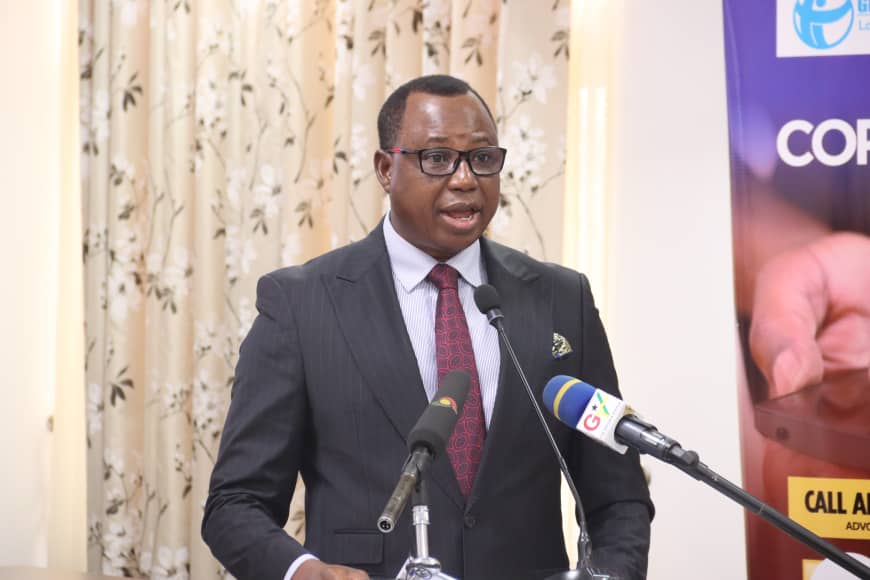By Benjamin A. Commey
Accra, Sept. 21, GNA – The Office of the Special Prosecutor (OSP) has proposed an amendment to two of the country’s anti-corruption laws to give them more teeth to bite.
The two laws; the Criminal and other Offences Act, (Act 29) and the Office of the Special Prosecutor Act, in their current state, the OSP said, were not strong enough to fight all corruption and corruption-related offences within the Ghanaian society.
Mr Sammy Appiah Darko, Director, Strategy, Research and Communications Division, the OSP, who made the call, said an amendment to the two Acts to include provisions on unexplained wealth would give anti-corruption agencies the tool to fight all types of corruption.
“If you take any of the African countries that are leading in the fight against corruption, you realise that, let’s take Kenya for instance, they have a direct provision on what we call unexplained wealth order, so that the burden is shifted on to the suspect or the accused, rather than on the law enforcement agency or the anti-corruption board, so that, they need to prove how they came by that wealth,” he said.
He added that “as it stands now, we have provisions in the OSP Act that allows us to do lifestyle audits but, by and large, the burden still remains with the prosecutor, and as you know, corruption is between two people who are unwilling to let you know what has happened.”
Mr Darko said this at a forum to discuss the achievements and challenges of the African Union Convention on Preventing and Combating Corruption (AUCPCC), after two decades of the implementation.
The objective of the forum was to generate discussions on the AUCPCC to increase its visibility and, interrogate key policy and implementation gaps of the convention.
It was organised by the Ghana Integrity Initiative (GII) in collaboration with the Commission on human Rights and Administrative Justice (CHRAJ) and the Ghana Anti-Corruption Coalition (GACC).
Mr Darko also proposed provisions for what they termed “the non-conviction-base forfeiture” which would enable an illegally acquired asset to be forfeited without necessarily having to go to trial.
“We have bits and pieces of provisions in the OSP Act, but we think that it may allow even judges and people who sit on the cases to put in their interpretation, and we feel that, we must have a direct provision in the law so that, you know that you can do this without being subjected to interpretation,” he explained.
The AUCPCC was adopted on July 11, 2003, at the Second Ordinary Session of the AU Assembly in Maputo, Mozambique.
The purpose was to, among other things, criminalise corruption and its related offences, put in place institutional measures including strengthening anti-corruption institutions and put in places preventive measures such as strengthening citizens confidence in fight against corruption.
Ghana is among 48 countries to have ratified the AUCPCC after it did so on June 24, 2007.
Mr Edem Senanu, Member, AU Advisory Board on Corruption (AUABC), said Ghana had made significant strides when it comes to aligning key articles of the AUCPCC to its anti-corruption institutions.
Out of the 12 key relevant articles of the AUCPCC, Ghana has institutionalised 11 of them, representing 91 per cent.
Despite this, Mr Senanu explained, there was a gap when it came to the implementation of those articles.
He, among other things, urged that anti-corruption agencies and other bodies should be given continuous empowerment with adequate human and financial resources, strong partnership be established between anticorruption. Stakeholders and continuous engagement with citizens, to strengthen their capacity to fight the canker.
Mr Joseph Whittal, Commissioner, CHRAJ, noted that a number of the country’s anti-corruption laws were outdated, making them toothless, stressing the need to strengthen them to empower them to fight corruption better.

“The provisions that are supposed to be there to ensure that the fight against corruption is actually genuine, a lot leaves to be desired, so, this is an opportunity for us to start the conversation as to how we can either review our laws or the areas that will make our laws stronger, and the institutions that are being set up, the anti-corruption bodies and law enforcement agencies will be able to use them more effectively.
“Otherwise, the corrupt will always get away because the legislation is not strong enough.” Mr Whittal said.
GNA